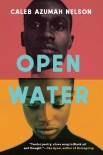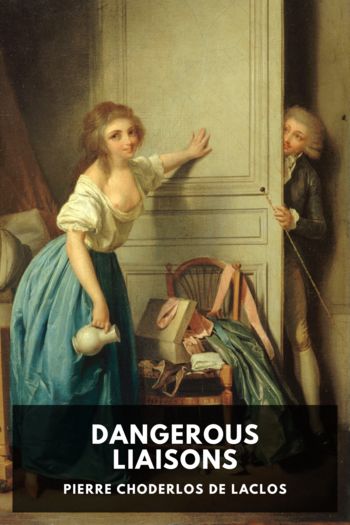Open Water, Caleb Nelson [best summer books txt] 📗

- Author: Caleb Nelson
Book online «Open Water, Caleb Nelson [best summer books txt] 📗». Author Caleb Nelson
8
‘I’ve been feeling low.’
‘Are you OK?’
You’re lying on your bed, feet propped up against the wall, watching the ceiling like an unmoving sky. You’re on the phone, reaching across the distance, not for the first time, nor the last. Her voice spins towards you through the soft static and you try to map its direction, imagining the soundwave drifting from a place you have never seen.
‘Can I be honest?’
‘Always.’
‘I’m very tired.’
With your confession, the truth imbues your self with form and detail. You hear her low exhale and know she understands you’re not tired in the way sleep will solve, no. You’re weary. You’re not without joy, but the pain is much, often. And like Jimmy said, you begin to think you are alone in this, until she says:
‘Me too.’
‘How do you cope?’ you ask.
‘I smoke. I drink. I eat. I try to treat myself often. I try to treat myself well. And I dance.’
‘Tell me more about that. Please.’
‘The smoking or the drinking?’
You both laugh and you hear her rearrange herself, perhaps sitting up.
‘I like to move,’ she starts. ‘I always have. Used to catch me on the playground out-dancing everyone. It’s my space, you know? I’m making space and I’m dancing into the space. I’m like, dancing into the space the drums leave, you know, between the kick and the snare and the hat, where that silence lies, that huge silence, those moments and spaces the drums are asking you to fill. I dance to breathe but often I dance until I’m breathless and sweaty and I can feel all of me, all those parts of me I can’t always feel, I don’t feel like I’m allowed to. It’s my space. I make a little world for myself, and I live.’
‘Wow.’
‘Sorry, that was a lot.’
‘No, don’t apologize. I’ve never heard anyone talk about dance like that, it’s cool. There’s a night on Wednesdays in Deptford, really close to you . . . it’s jazz music but there’s something different in that room. An energy that’s very . . . very freeing. A bunch of Black people just being themselves.’
‘We should go when I’m back in London. There’s nothing like that in Dublin.’
‘Let’s do it.’
You turn the phone on speaker and let your legs flop onto the bed. Resting your body on its side, both hands tucked underneath your head as if in prayer. Desiring peace. Your breathing eases. You hear hers too, both of you pushing and pulling, ebb and flow, the ocean separating you. Somewhere in the quiet rush, you hear a snore. You sign off quietly, hoping not to wake her.
9
‘Do you want a biscuit?’
‘Erm –’
‘Go on. Take a couple.’
Her mother places a large silver tin on the tiny table in front of you, an assortment of biscuits stacked over each other. You take a pair of chocolate digestives, and dip one into your cup of tea. The biscuit softens and one half plops into your Earl Grey.
‘What’s on at the moment?’ her mother asks no one in particular, pointing the remote at the television. Flicking through the channels, she settles on the Winter Olympics. You both watch four humans skitter around a racetrack, carved from solid blocks of ice, in a svelte vehicle shaped like a long smooth pebble.
You are here, at her house, for your hoody. You were meant to meet just before she returned to Dublin, but in this city, much will conspire to prevent meetings and appointments. It was a Sunday in February, and you both watched train after train cancel, before giving up. So now you’re here, without her presence, which is heavier in her absence. You’re here, in her house, for your hoody, which you expected to pick up and depart, back to your home, where it is just you, where the quiet is beginning to hum and buzz in a way you can hear.
When you came in, her mother welcomed you, and asked if you wanted a cup of tea. You watched her elegant yet determined shuffle, head down in concentration rather than dismay, opening cupboards, retrieving the biscuit tin.
‘Ridiculous sport,’ her mother says. The screen has changed. A woman slowly launches a stone-shaped object across the ice, letting go of the curved grip mounted to the top. Two more women, armed with long-handled brushes, scrub at the ice as if they are trying to rid a stain. An invisible path is cleared and the object glides silently across the ice, entering a target zone with a white bullseye.
‘Of course, hold on.’ You hear her shuffling elsewhere in the house; when she comes back to the living room, she lays your hoody across one of the chairs.
‘What have you been doing today?’
It’s Saturday night. Elsewhere in the city, people are rebelling against their weekly duties, filling up pubs and bars and dance floors. Whatever warmth was teased earlier in the winter must have been delusion. You spent the day indoors, the morning slipping by at your desk where you flicked through a book of images – Roy DeCarava’s The Sound I Saw – and you wrote a little, not much, but something, you wrote something. The rest of the day, a blanket draped over you, poring over the pages of a novel – Zadie Smith’s NW.
‘I love her writing,’ her mother says.
‘She’s my favourite writer. NW is the book I return to most.’ Perhaps that is how we should frame





Comments (0)